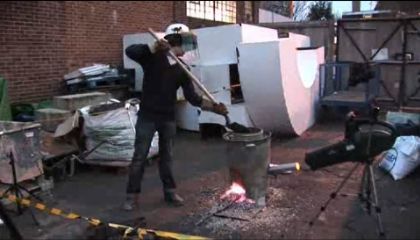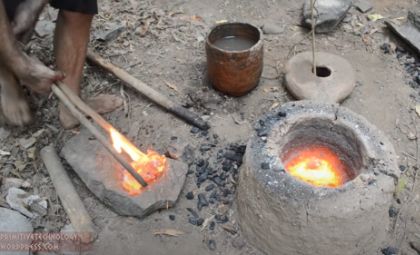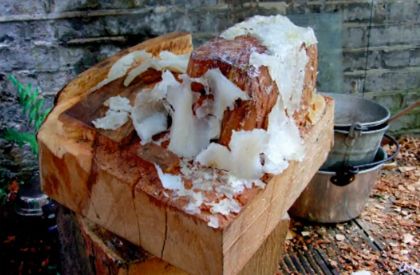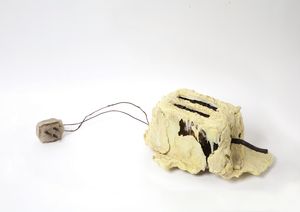An interview with Thomas Thwaites.
For his Master’s thesis project, Thomas Thwaites set out to produce a quotidian object from scratch: a toaster. He deconstructed the cheapest toaster he could find (£3.94) and spent nine months trying to recreate it. His quest was driven by the question, “How the hell do some rocks become a toaster?” The final product is a lumpy construction that cost £1187.54 – and also a window into the dizzying complexity that goes into producing simple commodities.
Thwaites documented his journey in The Toaster Project: Or a Heroic Attempt to Build a Simple Electric Appliance from Scratch. In it, he explores “the economies of scale in modern industry, the incremental progression of science and technology, and … the ever-widening gulf between general knowledge and the specialisms that make the modern world possible.”
The book raises more questions than it answers – about the scale of global extraction and the trade-offs our society is willing to make in the name of comfort and convenience. But the tone never becomes overly didactic, instead offering up hilarious recaps of his failed experiments and correspondence with both interested and uninterested collaborators. Spoiler alert: Thwaites does not convince BP to let him ride a helicopter to an offshore oil rig and scoop up a jug of oil!
Thomas recently joined Scope of Work's Member reading group for an hour-long conversation about the book and his unique design practice. What follows is an edited and condensed transcript of our discussion.
James Coleman: You embarked on this task of building a toaster, which is clearly a very, very difficult thing to do, but what was so inspiring to me is that you kind of did it. You had a thing – it had the form of a toaster and it sort of worked, which is amazing! I'm curious about the different pieces of it - the mica, the steel, the plastic - was there a piece you were most proud of?
Thomas Thwaites: Probably the steel, partly because it's such a ubiquitous material and it's been around for millennia, but also because it turns out when you actually try to get there yourself, it's extremely difficult. I wasn't able to make steel, just iron. In terms of my journey and process, it was the first hint that "Okay, things are way more difficult than I could have imagined.”

That was the most interesting discovery for me. You may have seen the Primitive Technology channel on YouTube, where there's this guy who really goes to town on developing materials. I'm not sure if he's made steel yet, but he's certainly made iron. Around that time, I purposefully decided, "I don't want to be the primitive tech guy – I'm just not that sort of person.” So with the other materials, I deflected quite a lot and started making my own rules.

JC: In the book, you mention that you accidentally made pig iron instead of wrought iron because you used coke instead of charcoal. That sparked a lot of discussion around environmental externalities and how lower-quality materials end up in use because there’s just a reduction in what’s available. That's really fascinating.
TT: Well, exactly. People chopped down all the forests so they couldn't use charcoal. And then they thought, "Okay, well, we've got all this coal, but that's terrible because it's got all these impurities, so we'll do this coking process." So, there's definitely something apocalyptic about the Toaster Project as well – it reveals how the availability of resources has changed and how, for example, we couldn't restart the Iron Age today. It is something of a historical anachronism, given all the metal is now at the surface. But let's not hope for an apocalypse so we can put this stuff to the test.
Eric Andersson: If you were tasked with making another toaster, what would you do differently? And if you did the same processes again, do you think you would be significantly more successful because you already have the knowledge and skills?
TT: I think I certainly would be significantly more successful. I learned so much from my personal processes of just giving it a go, seeing what happens, and hoping that it will work – even if inevitably it doesn't. Then I have to go back and work out what went wrong.

But if I were to do it again, I would want to ask different questions about the economics and the philosophy of technology, weaving in different underlying questions to the practical, making aspects. My project at the moment is to make a harmless car – so maybe I would make a harmless toaster, or something like that. I would want to push it in a different direction, I think. But pushing it in a different direction would mean I wouldn't be doing the same things again – so it would be just as bad the second time.
Read the full story
The rest of this post is for paid members only. Sign up now to read the full post — and all of Scope of Work’s other paid posts.
Sign up now


